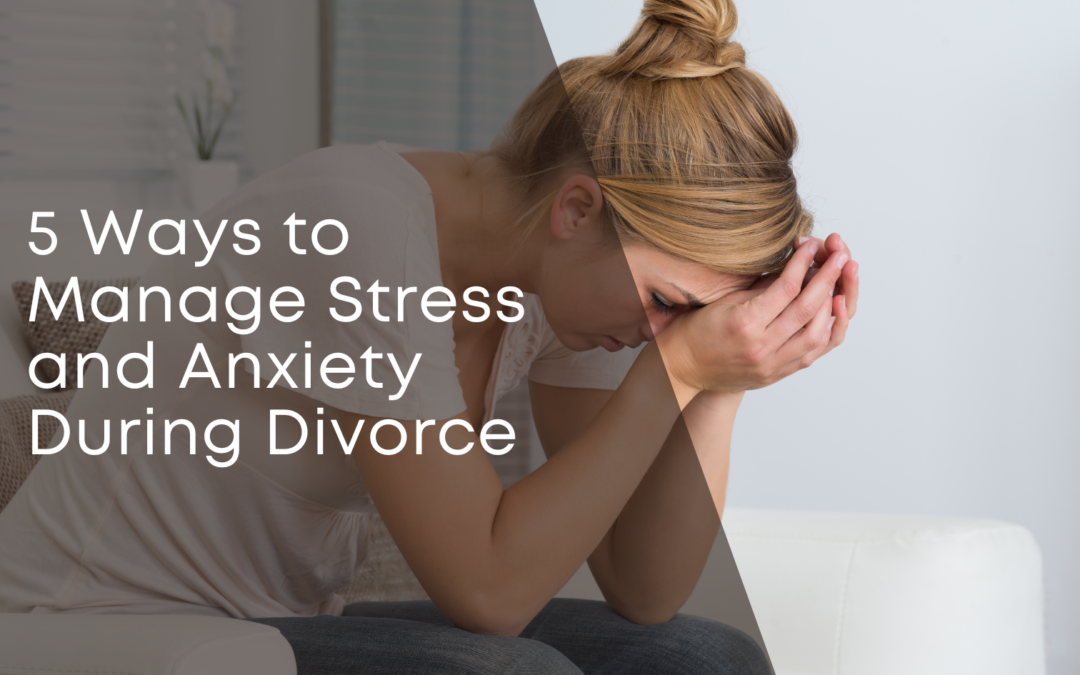Divorce. It’s a word that brings up a lot of emotions—fear, sadness, uncertainty. You never thought you’d be here, but now, you’re facing one of the most stressful times of your life. The tension is unbearable. The anxiety can feel paralyzing. And worst of all, you’re left asking yourself, “How do I move forward without letting this overwhelm me?”
But what if there’s a way to manage the stress? A path that doesn’t just focus on getting through the divorce but helps you emerge stronger and more at peace?
The Stress and Anxiety of Divorce: What’s Really Going On?
Divorce is not just a legal process. It’s a life-altering experience that can shake the foundation of everything you know. Let’s break down the layers of the problem you’re facing: On the surface, the challenges are clear—splitting assets, figuring out custody, handling legal battles. The paperwork, court hearings, and the back-and-forth with your ex can make you feel like you’re constantly in fight-or-flight mode. Beyond the logistical nightmare, you’re wrestling with a deep sense of anxiety. The fear of the unknown can feel paralyzing. What will life look like after divorce? Will you ever feel happy again? Divorce can often trigger feelings of failure or inadequacy, leading to chronic stress. At a deeper level, it feels unfair. You gave so much to this relationship, and now you’re left to pick up the pieces. Why does it have to be so painful and draining? Shouldn’t there be a better way to handle such a major life transition? Divorce can challenge your worldview, making you question whether life is as fair as you once believed. But here’s the good news—it doesn’t have to be this way. There is a better, more peaceful path forward.
5 Ways to Manage Stress and Anxiety During Divorce
I’m Steven Unruh, a divorce mediator with over 30 years of experience helping people like you navigate this challenging time. I’ve seen firsthand how stressful divorce can be, but I’ve also seen how much smoother it can go with the right support. Mediation is an approach that can alleviate much of the stress and anxiety you’re feeling. It allows you to take control of the situation, avoid lengthy court battles, and make decisions that work best for you and your family.
I’m here to offer you advice that will help you manage the anxiety of divorce, so you can focus on what really matters—your emotional well-being and future.
1. Focus on What You Can Control
It’s easy to feel overwhelmed by all the moving pieces during a divorce, but not everything is within your control. One of the best ways to reduce anxiety is to shift your focus to the things you can manage. For example:
- How you react to your ex-partner
- Decisions about your own well-being, such as exercise, diet, and sleep
- Seeking out professional help, like therapy or mediation By zeroing in on what’s within your power, you can lessen the feeling of helplessness that often accompanies divorce.
2. Set Boundaries and Stick to Them
Emotional boundaries are crucial during this time. Divorce often brings out the worst in both parties, but protecting your mental and emotional health is a must. Set clear boundaries about communication with your ex, especially if conversations tend to escalate into arguments. Establishing these limits early on will help reduce unnecessary stress and conflict.
3. Prioritize Self-Care
During divorce, it’s easy to let self-care slip through the cracks, but it’s essential for managing stress. This doesn’t just mean bubble baths or spa days (though those can help, too). Prioritize the basics:
- Get at least 7-8 hours of sleep a night
- Engage in physical activity—exercise releases endorphins that combat stress
- Eat balanced, nutritious meals Self-care is a way to restore your energy and build emotional resilience. Research has shown that regular exercise can reduce anxiety symptoms by up to 30% .
4. Choose Mediation Over Litigation
Court battles are stressful, expensive, and drawn-out. Mediation, on the other hand, is designed to reduce tension and facilitate productive conversations. As a mediator, I help couples work together to find mutually beneficial solutions. This process allows you to stay in control of your decisions, rather than leaving them to a judge. Mediation is proven to be faster, less costly, and less stressful than litigation .
5. Stay Connected to a Support Network
Divorce can feel isolating, but you don’t have to go through it alone. Rely on your support system—whether it’s friends, family, or a therapist—to help you navigate this difficult time. Surrounding yourself with people who understand and care can alleviate the loneliness and stress that often come with divorce. Studies show that people who have strong social support during divorce have significantly lower levels of anxiety and depression .
Take Control of Your Divorce Journey
You might be thinking, “I’m too busy to take time for self-care,” or “Mediation won’t work for my situation; we’re too far apart.” These concerns are valid, but they’re also obstacles to your own peace of mind. Remember, mediation isn’t about forcing an agreement—it’s about creating a safe space to discuss options. And while self-care might feel impossible right now, prioritizing it can significantly lower your stress levels, giving you more energy to tackle the challenges of divorce.
Divorce is hard, but it doesn’t have to break you. By focusing on what you can control, setting boundaries, prioritizing self-care, choosing mediation, and staying connected to your support network, you can reduce your stress and anxiety.
Ready to take that first step toward a calmer, more manageable divorce process? I’m Steven Unruh, and with over 30 years of experience in divorce mediation, I’m here to guide you. Don’t let divorce define your life—let’s work together to navigate this storm. Contact me today to explore how mediation can ease your burden and help you move forward with confidence.


Recent Comments